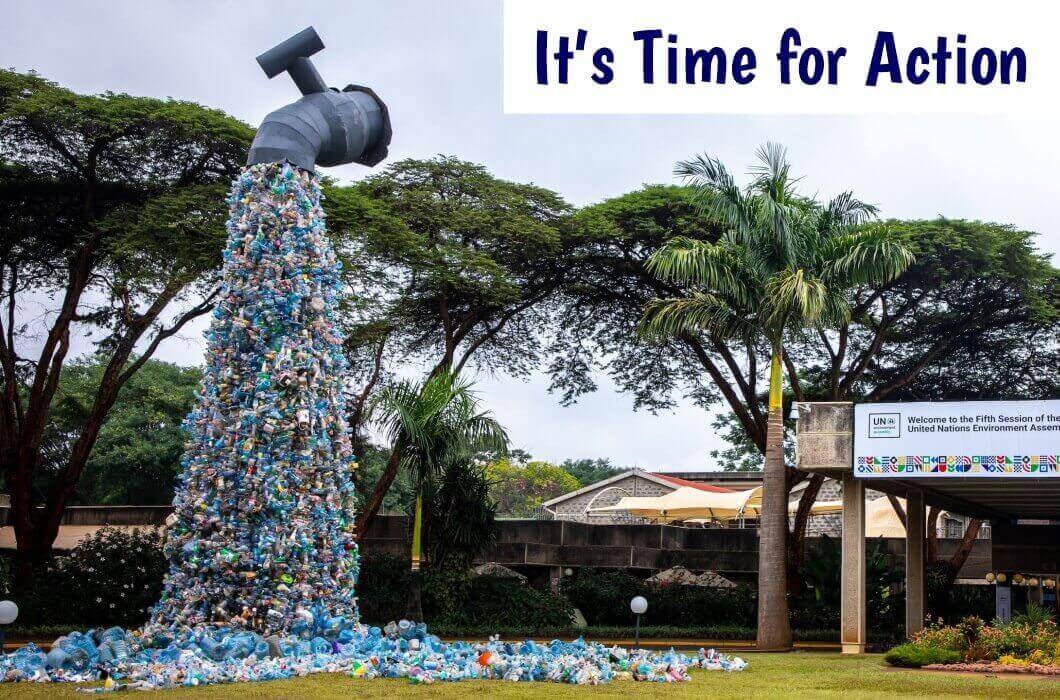While plastic plays a vital role in our lives and provides several benefits, much of it ends up as waste in incinerators, landfills, and takes the form of environmental pollution, despite continued efforts. In 2015, the global plastic production was 381 million tonnes . Every year, hundreds of thousands of tonnes of plastic waste end up in the oceans. The majority of the waste comes from low- and middle-income countries, which have limited recycling and waste-burning capabilities.
Plastic pollution has a harmful influence on marine life. There are concerns that it may have an impact on human health as well. We have wreaked unimaginable havoc on the entire ecosystem in just one human lifetime, choking every area of the world's ocean with plastic trash. The crisis will worsen until we drastically change how we create, use, reuse, and dispose of plastic. No matter how good its policies are, one country can not deal with plastic pollution alone. To cope with the many difficulties that plastic presents to us as a society, we will require a global agreement.
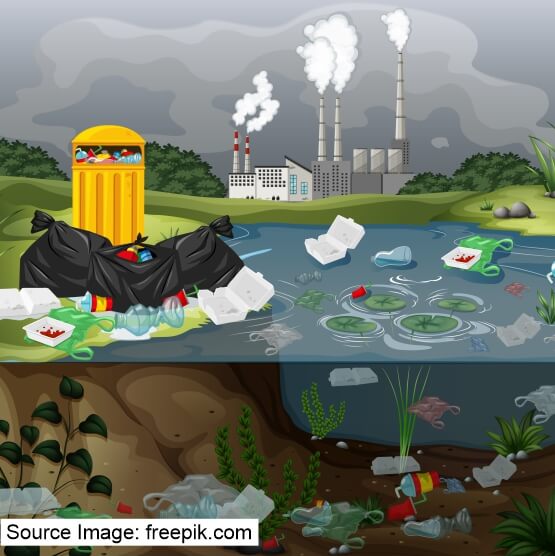
About UNEA-5
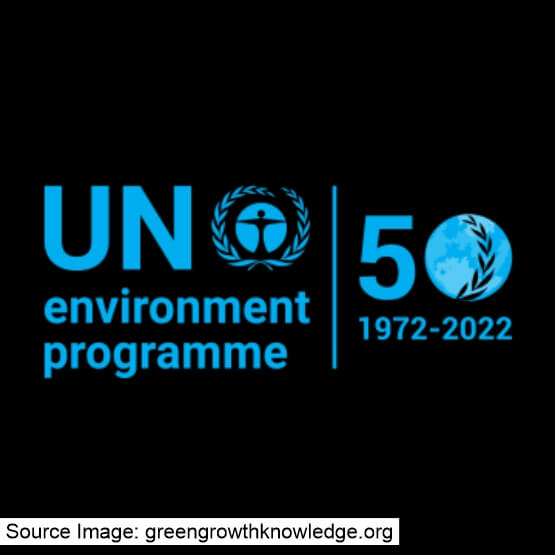
Environmentalists are calling for clear and effective global standards that encourage countries to follow common plastics laws and regulations while penalizing damaging products and activities. The fifth session of the United Nations Environment Assembly (UNEA-5) was held in Nairobi, Kenya. The UNEA-5 session took place from February 22-23, 2021, amid the Covid-19 pandemic. From February 28 to March 2, 2022, UNEA-5 resumed its in-person session.
"Strengthening Actions for Nature to Achieve the Sustainable Development Goals" was the theme of UNEA-5. At the meeting, heads of state, environment ministers, and other representatives from 175 countries adopted a historical resolution to eradicate plastic waste and establish an international legally enforceable pact known as the "Global Plastics Treaty" by the end of 2024.
Two competing ideas were put forward during the meeting,
- Peru and Rwanda are leading one idea. It covered all aspects of the plastics life cycle, including production, consumption, and disposal.
- The second idea was much more restricted. It was primarily concerned with the issue of plastic pollution in the oceans. Japan took the initiative
Turning off "the plastic tap" requires addressing the entire lifecycle of plastic items, including manufacture, usage, and disposal. Over the next two years, and International Negotiating Committee (INC) will be responsible for developing and ratifying the mandate including which components would be legally obligatory and how the agreement will be funded. This Treaty would rank with the Montreal Protocol and the Paris Climate Agreement as one of the most important international environmental treaties in history.
Mandates of the Treaty
The mandate calls for action to combat plastic manufacturing, which is expected to nearly quadruple by 2050 and consume 10-13 percent of the global carbon budget, harming the climate. The Global Plastics Treaty will address the entire life cycle of plastic, not only post-consumer waste. This marks a significant shift in international policymakers' thinking on the crisis, which had previously focused on plastic as a "marine litter" issue. Following hundreds of studies revealing the impact of plastic in the environment and its presence in the air, agricultural areas, and drinking water, the mandate suggests reducing the harmful burden of plastic.
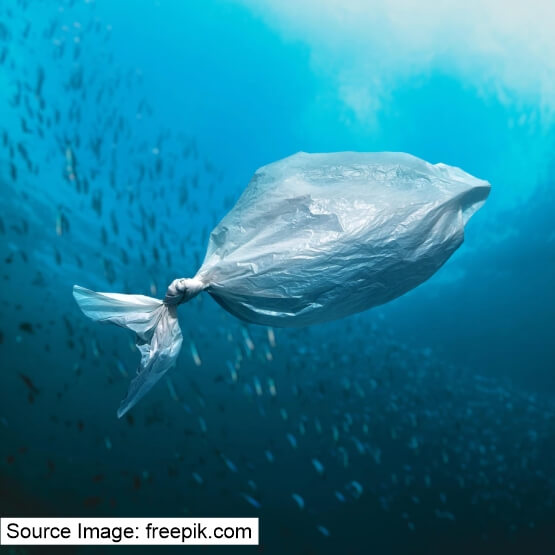
Plastic-derived toxic compounds have been found to enter the human body via a variety of routes, resulting in infertility, cancer, and metabolic malfunction, among other things. Leaders from around the world have until 2024 to reach an agreement on the plastic pollution treaty, including which components would be legally obligatory and how the agreement will be funded.
Plastic crises in India
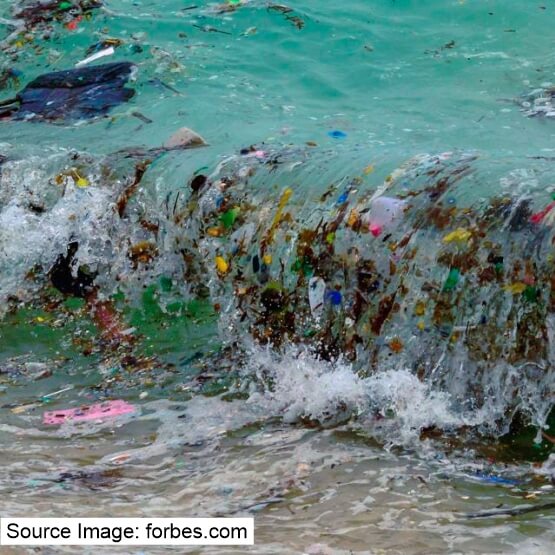
With a majority of countries adopting binding commitments, the Indian proposal suggested voluntary action, which remained a separate document throughout the negotiations. The term ‘voluntary’ was kept as an option upon appeal by India. The addition of the phrases ‘national circumstances and capabilities’ to the text was also a priority for New Delhi, as it aligns with its perspective of shared but differentiated responsibility under the Paris Agreement.
“The formation of a treaty on plastics will provide a significant and positive impetus to India’s war on single-use plastics’’, environmental lawyer Ritwick Dutta of LIFE commented on the impact in India. India has already taken bold initiatives to combat plastic pollution under the leadership of our Prime Minister Narendra Modi. India has banned single-use plastic, which will come into effect on July 1. The Center has recently issued new guidelines requiring manufacturers, brand owners, and importers of plastics to recycle, as well as a roadmap for incorporating the large informal sector involved in plastic recycling into a more formal circular economy. The manufacture, import, stocking, distribution, sale, and use of the following single-use plastic, including polystyrene and expanded polystyrene, commodities shall be prohibited with effect from the 1st July 2022:
- Earbuds with plastic sticks, plastic sticks for balloons, plastic flags, candy sticks, ice-cream sticks, polystyrene [Thermocol] for decoration, plates, cups, glasses, cutlery such as forks, spoons, knives, straw, trays, wrapping or packaging films around sweet boxes, invitation cards, and cigarette packets, plastic or PVC banners less than 100 micron, stirrers.
- In order to stop littering due to lightweight plastic carry bags, with effect from 30th September 2021, the thickness of plastic carry bags has been increased from fifty microns to 75 microns and to 120 microns with effect from the 31st December 2022. This will also allow the reuse of plastic carry bags.
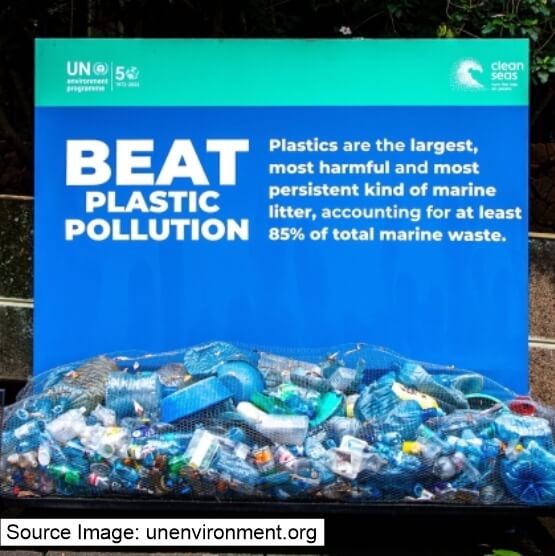
Alexander Ellis said, “An initiative to reduce plastic waste in India has been launched by Prime Ministers Boris Johnson and Narendra Modi. The UK is proud to be India’s biggest European research partner, with £400 million of joint investment since 2008. It will complement India’s other bold initiatives in the renewables sector and efforts to limit single-use plastics.” The pact provides a strong platform for Indian businesses to drive actionable, sustainable solutions and speed up the transition toward a circular economy.
We must recognize that the complex climate jargon and vocabulary are understood only by a few. If we want to implement climate solutions on the ground, this vocabulary needs simplification, so as to be understood by billions. People at large must advocate climate action, for which they must first understand it.
To deal with discarded plastics in the ecosystem, restoring coastal blue carbon habitats such as mangroves, tidal marshes, and seagrass meadows become important. These habitats trap and bury plastics, preventing them from entering marine ecosystems. They trap more carbon than terrestrial forests. Finding solutions to address two of the most critical global problems of this century, namely plastic pollution and climate change, would help us protect communities and habitats. How far India and the world can go with limited short-term emissions reduction and ambitious long-term climate action plans is something that remains to be seen.
